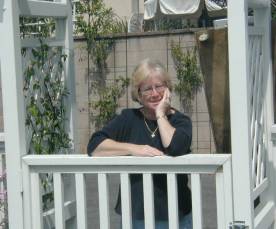Rainie discusses the findings of the Pew Internet & American Life Project that explores "the behavior and expectations that result from living in a world that offers media and message delivery through so many different devices, in so many different ways.¨
Rainie traces the development of the digital native, describing the social impacts of the Internet and the web as well as the expansion of the web into Web 2.0. He defines a digital native as someone under 25 who has grown up with the advantages of ¡§connected resources.¡¨ They were born into a world where gaming and the personal computers were taking over the mainframe operations: WWW (1990), Palm (1996), Napster (1999)and now Podcasts, Blogs, Social networking sites, and video blogging (UTube).
He also discusses the 7 new realities in the life of digital natives and what they mean for them and for librarians:
1) Media and gadgets are an ubiquitous parts of everyday life¡KLee uses a great graphic to illustrate the change in Home media ecology and the interrelated nature of it all. What is really remarkable is how much it has changed in the last 4 months! Media is now ¡§consumed¡¨ by so many other ways than traditional radio and television (computers, laptops, IPODS, cell phones, etc.)
2) New gadgets allow them to enjoy media and take it with thm (77% of young adults have cell phones¡KNew features include texting, photography, games, Internet access, email, music, video clips, mobile maps, watch tv and video. Digital cameras now have moved more into the social perspective by including photos and share them online as part of story telling. 51% of teens own MP3 players.
3) The Internet is at the center of the revolution: dynamic changes in the use of the Internet and broadband access. Broadband users are very different users than dial-up users. Brought it into the rhythms of everyday life¡K
4) Different people use the Internet in different ways (slides illustrate the use by the young, Gen /Boomers, Seniors) Also draws comparisons of use by ethnic groups.
5) Multi-tasking is a way of life„³ Linda Stone calls it ¡§continuous partial attention.¡¨
6) Ordinary citizens have a chance to be publishers, moviemakers, artists, song creators and story tellers. They are now ¡§media creators.¡¨ The latest Pew study will look at the social issues of sharing more intimate (aka personal) information on their blogs.
7) Everything will change even more in the coming years. J-curve laws¡Kexpectations of the users of information will drive what happens.
More transparency and findable about institutions and individuals.
Relevant information independent/edited and commercial =¡§uber alles¡¨
Cluetrain manifesto: In a new interactive age, boundary between comsumer and producer breaks down. Expectations that one can interact with institutional information and media.

